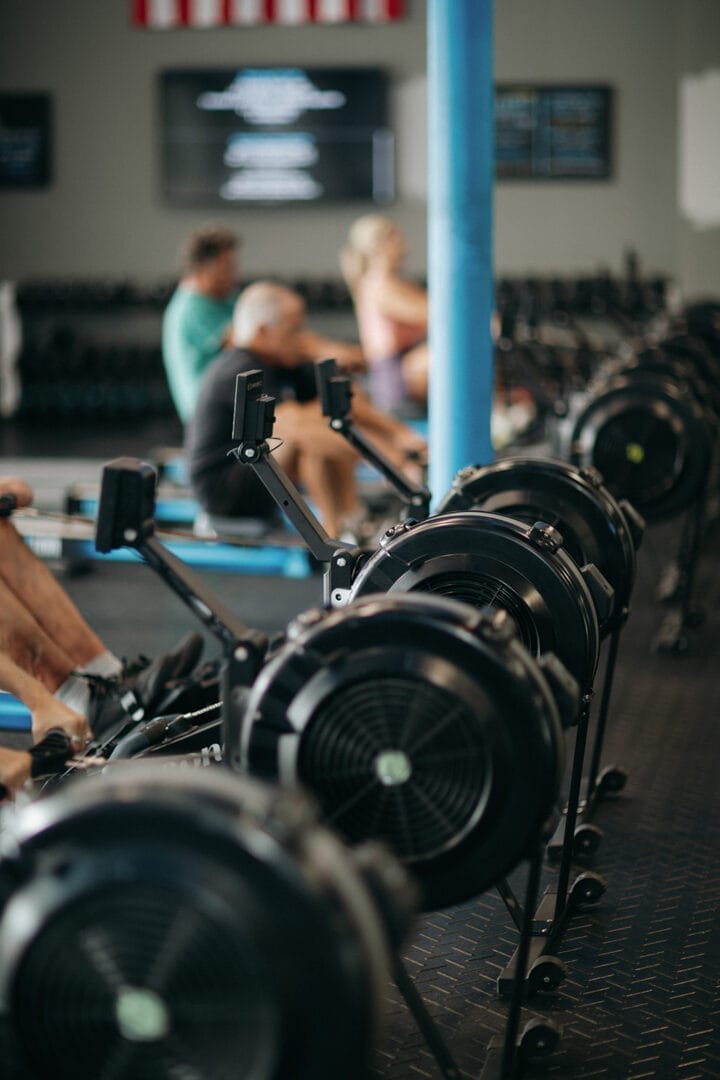(Note this article is aimed at the general population and not highly competitive athletes – that means unfortunately, if you work a full-time job and not competitive at a high level in a given sport, you are the general public !!) Some of us are not only training more, but harder than ever. Extreme modes of exercise such as HIIT and Crossfit are gaining in popularity with some people training five, six, or even seven days a week. But how much is too much? 
7 Common Overtraining Symptoms
There are a number of overtraining symptoms that include tiredness, tightness, decrease in performance, increase in injuries, restlessness, elevated blood pressure, decreased strength, decreased endurance, decreased max heart rate, allergic reactions, a change in menstrual patterns, plus many more. As some are easier to spot than others, here are the top 7 signs you’re overtraining.
- Lack of Motivation
Lost all drive and motivation to train, or really perform any physical activity? Your body is telling you that you need to rest and recover because you are doing too much. We all have days when we don’t feel like training, heck. I have them all the time. But if you go days, or even weeks, without wanting anything to do with the gym, it’s time to listen to your body and take a rest.
- You Feel Especially Sore Following a Big Workout
Highly dependent on nutrition, if you’re eating enough while training hard but still feel intense soreness after your workouts, there is a chance overtraining has set in. Different than the usual soreness from training, it will linger for a few extra days and might be a little more painful. As most newbies often do too much too fast, overtraining is common in beginners Remember the first time you trained your arms and you couldn’t wash your hair for a week? Or how about the first time you did legs and dreaded walking up stairs for a week?
- You Stop Seeing Results
Believe it or not, working out too much can actually cause you to lose muscle and gain fat! If it was as simple as energy balance (burning more than you consume) then the more you train the better. The problem is that hormones play a large role in the equation. Overtraining causes your body to produce inadequate amounts of testosterone (bad for the ladies too) while producing higher levels of cortisol. The problem for both men and women is that your body increases both insulin resistance and fat deposition. We are training to get strong and lean, right?
- You Become Restless and Lose Focus
Typically found in strength or power athletes or those who train with high intensity intervals, what happens is your sympathetic nervous system goes into overdrive, causing hyperexcitability, restlessness, and inability to focus. This restlessness makes it even harder to recover as I can’t stress enough how important sleep is for recovery and consistent gains.
- You Feel Sluggish All Day
Another effect of overtraining the sympathetic nervous system, this often happens with endurance athletes. Again, the result of decreased testosterone and increased cortisol levels, in some cases causes debilitating fatigue that feels like you’ve come down with a cold. I typically recommend intense workouts of shorter duration due to the effects of long duration endurance training. Just because you are physically able to run 10 or more miles each week doesn’t mean that you have to.
- Chronic Soreness in Your Joints, Bones and Limbs
Post workout soreness in the form of DOMS (delayed onset muscle fatigue) is normal, but if you experience intense and prolonged soreness, you may have done too much. Basically, if it feels like you got run over by a bus, you should cut back on your volume or intensity.
- You’re Sick More Often
Very often caused by a combination of things such as lack of sleep, poor diet, not enough activity and mental stress, if you think you are on point with all of these things and still find yourself getting ill, it may be due to overtraining. It’s really easy to ignore those early morning sniffles or a cough here and there, but make sure you listen to your body. Those little hints could be telling you that something is wrong with your immune system from your increased training volume.
How To Avoid Overtraining

- Sleep
Sleep is cheap, effective, and so simple a caveman could do it. And it’s something where most people really miss the ball. If you want to double your results and decrease your risk of overtraining, you might want to hit the hay an hour or two earlier. Sleep is so important because it helps repair your body.
- Nutrition
Your diet plays a huge role in recovery. Without the proper nutrients, you’re shooting yourself in the foot before the race even begins. You wouldn’t get in your car to drive to work without any gas, or with the wrong fuel, would you? Your body needs quality fuel and empty calories won’t cut it. To prevent overtraining, you should have an adequate intake of protein, fats, and carbs, which is why many restrictive and fad diets don’t work. I am a firm believer that every meal is important but both your pre-workout and post-workout meals are key for recovery and preventing overtraining symptoms.
- Stress
One thing rarely taken into account is your body’s stress level. You need to consider both training as well as outside stressors. If everything else is on point, and you are still not achieving results from your Programme, you might want to give some thought to whether stress is the culprit. Take someone under deadlines at work, in the process of moving, who discovers they have a sick relative. These are high levels of stress building up and can hinder progress. It might be a good time to take some time off strength training and go for some yoga, meditation, and soft tissue work, all viable options for stress recovery.
- Training
Just as training too frequently causes problems, smart training volume prevents them. A good rule of thumb is to train only enough to elicit a training response. Don’t train to the point where it takes 2 weeks to recover from one session. Smart balanced Programmeming is key here. Rest between heavy lifting sessions as much as possible and avoid training heavy with full body lifts one or two days in a row. Also, you may consider changing up the intensity week to week: train hard and heavy one week, then, the following week, take it back a notch. To maximize results and minimize injury, be sure to progress your workouts slowly, instead of making large jumps in training volume, or intensity. This helps your body to adapt to new stresses. Depending on your goals and training experience, I also recommend a deload week where you significantly decrease training volume every 4-12 weeks.
- Recovery
Just as I mentioned above, taking at least one or two days in between training sessions helps you recover much faster, but this doesn’t mean you have to stay out of the gym all together. There are a few activities to try on rest days that will keep you active and help prevent overtraining and injuries. Spending some extra time on a foam roller and doing some proper stretching is never a bad idea. Especially if you work at a desk, you can never spend too much time with the roller. Non-impact activities like yoga and swimming can also aid in recovery as long as you don’t overdo it. These activities can be considered “active rest” to help rejuvenate your body and flush out toxins. With yoga, focus on the breathing and restful aspects and feel like a million bucks after class. Now that you’re equipped to spot the most common signs of overtraining, go train hard, train smart, and train with purpose!


